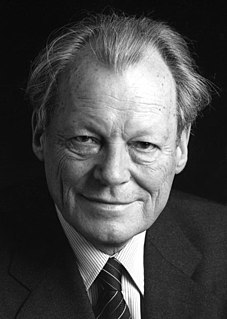A Quote by Klaus Schwab
An overwhelming number of economists, international civil servants, and policy-makers argue that a fragmentation of the Eurozone would cause a new depression and massive wealth destruction around the world. It would also end the period of economic integration that has characterized world politics since the end of the Cold War.
Quote Topics
Also
Argue
Around
Around The World
Cause
Civil
Civil Servants
Cold
Cold War
Depression
Destruction
Economic
Economic Integration
Economists
End
Eurozone
Fragmentation
Integration
International
Makers
Massive
New
Number
Overwhelming
Period
Policy
Politics
Servants
Since
War
Wealth
World
World Politics
Would
Related Quotes
Because the US has control of the sea. Because the US has built up its wealth. Because the US is the only country in the world really not to have a war fought on its territory since the time of the Civil War ... Therefore we can afford mistakes that would kill other countries. And therefore we can take risks that they can't ... the core answer to why the United States is like this is we didn't fight World War I and World War II and the Cold War here.
There is a myth that the New Deal programs on their own pulled the US out of the Great Depression and created the conditions for the economic boom after World War II. As an economist, I can tell you, that is not true. In reality, it was mainly World War II that launched the boom - the massive war mobilization, the horrifying destruction and death caused by it, and then the reconstruction in its aftermath. he US was the only advanced capitalist country that was not bombed during the war.
In the large sense the primary cause of the Great Depression was the war of 1914-1918. Without the war there would have been no depression of such dimensions. There might have been a normal cyclical recession; but, with the usual timing, even that readjustment probably would not have taken place at that particular period, nor would it have been a "Great Depression.
The New World Order is a world that has a supernational authority to regulate world commerce and industry; an international organization that would control the production and consumption of oil; an international currency that would replace the dollar; a World Development Fund that would make funds available to free and Communist nations alike; and an international police force to enforce the edicts of the New World Order.
The bipolar world of the Cold War is history. The new world order, however, is not the One World dreamed of by Wilsonian idealists. It is a Balkanizing world where race, tribe, culture and creed matter most, and democracy is seen not as an end in itself but as a means to an end - the accretion of power by one's own kind to achieve one's own dreams.
History of America, Part I (1776-1966): Declaration of Independence, Constitutional Convention, Louisiana Purchase, Civil War, Reconstruction, World War I, Great Depression, New Deal, World War II, TV, Cold war, civil-rights movement, Vietnam. History of America, Part II (1967-present): the Super Bowl era. The Super Bowl has become Main Street’s Mardi Gras.
It's important to remember that World War II was experienced very much as a continuity in that sense. Most of World War II in most of Europe wasn't a war; it was an occupation. The war was at the beginning and the end, except in Germany and the Soviet Union, and even there really only at the end. So the rest of time it's an occupation, which in some ways was experienced as an extension of the interwar period. World War II was simply an extreme form, in a whole new key, of the disruption of normal life that began in 1914.




































